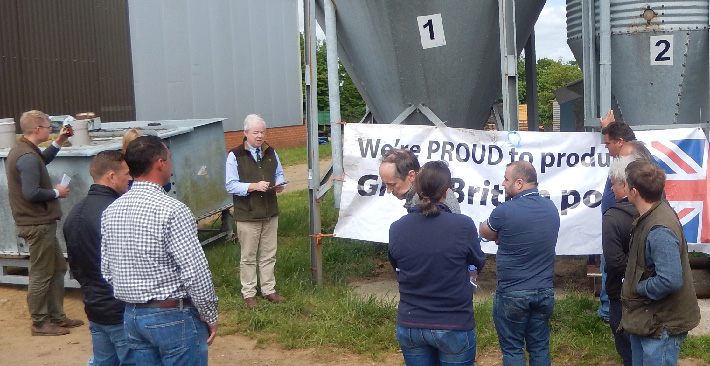Some of the steam seems to have come out of prices now that the Christmas holiday is approaching, although the SPP rose by 1.03p to stand at 160.67p.
European prices appear to have paused for breath, which they are fully entitled to do as since the start of the year the average European reference price has risen from 116p to 164p whereas its UK counterpart, the SPP has only put on a modest 20p since the start of the year when it was worth 140p.
Weekly contribution prices have largely stayed at similar levels with most between 155p and 163p/kg, although one processor went up by a copper, compared with the influential German producer price which remains at €2.03, equivalent to 169.5p/kg in our money.
Spot buyers have been more active in the market with the result that most spot trades have tended to be within the 163p – 166p/kg range, despite the run up to Christmas and a few more pigs coming forward.
Fresh meat wholesalers are reporting that domestic demand still remains selective, but it is the export trade to China which has put a rocket under the pig market.
Reports are emerging however that if Donald Trump and the Chinese Government agree terms, large volumes of tariff free pig meat from the US could head to the Far East, which could significantly undercut export deals with the EU and other producer countries.
Cull sow prices have taken a bit of a knock dropping by 3p/kg, mainly due to the fall in the value of the Euro with UK cull sow export prices generally between 117p and 120p/kg, not helped by a number of large German pig meat processing factories closing down or reducing volumes before Christmas.
Weaner prices continue to stage a modest recovery rising by 0.71p and the latest 7kg AHDB average stands at £40.60/head with premiums available for RSPCA assured pigs and 30kg weaners generally trading between £55 and £58/head.
In the commodity markets the value of cereals is drifting with January 2020 feed wheat quotes at £149/t and September at £156/t. UK spot feed wheat is trading at £137.60/t ex farm.
Barley is still at a discount with January 2020 deals done at £130/t and September values around £136/t.
Proteins have also eased to some extent due to a stronger Pound with January – April 2020 Hi Pro soya traded at £290/t and the same price applying for the May – October period.
However, the recent long periods of very wet weather will have an impact on harvest 2020 with large areas of land in the UK still too wet to drill and straw looking as though it could be worth as much as it was three years ago.
And finally, although we can now “do” Brexit according to Boris and leave the EU at the end of January, there is a whole heap of work to be done during the transition period which could last until the end of 2020 before the pig industry really knows whether it is going uphill, sideways or backwards.
Although the Chinese market remains a very valuable factor in the whole pig meat supply chain, UK Government officials need to pay closer attention to taking all possible steps to avoid ASF heading this way, especially at a time when red meat consumption is tending to fall and it would be hard to find alternative markets if the bamboo curtain was to close.
Perhaps by the end of the transition period we will find out whether this is the beginning of the end or the end of the beginning.




